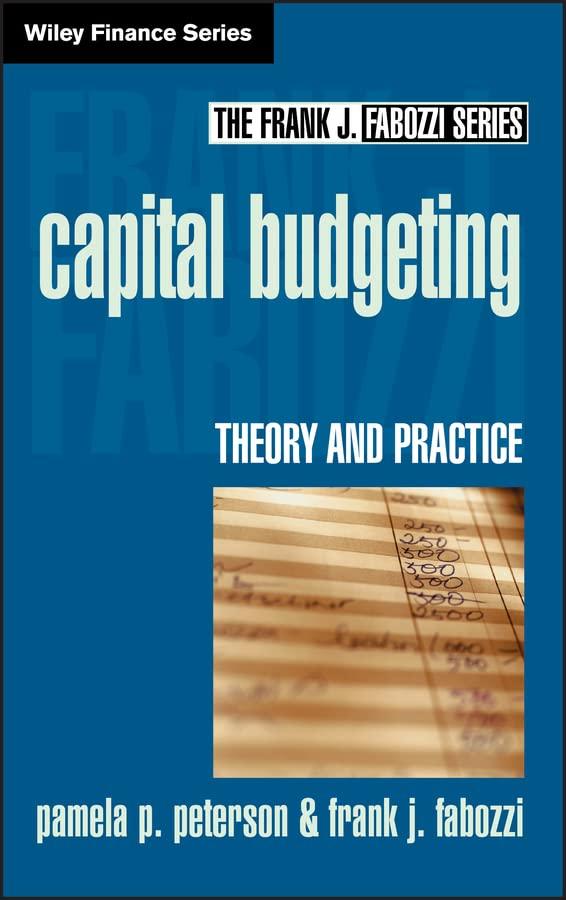Question
A 30-year maturity bond making annual coupon payments with a coupon rate of 12% has duration of 11.54 years and convexity of 192.4. The bond
A 30-year maturity bond making annual coupon payments with a coupon rate of 12% has duration of 11.54 years and convexity of 192.4. The bond currently sells at a yield to maturity of 8%.
Required:
a. Find the price of the bond if its yield to maturity falls to 7%. (Do not round intermediate calculations. Round your answer to 2 decimal places.)
b. What price would be predicted by the duration rule, if its yield to maturity falls to 7%? (Do not round intermediate calculations. Round your answer to 2 decimal places.)
c. What price would be predicted by the duration-with-convexity rule, if its yield to maturity falls to 7%? (Do not round intermediate calculations. Round your answer to 2 decimal places.)
d-1. What is the percent error for each rule, if its yield to maturity falls to 7%? (Enter your answers as positive values. Do not round intermediate calculations. Round "Duration Rule" to 2 decimal places and "Duration-with-Convexity Rule" to 3 decimal places.)
d-2. What do you conclude about the accuracy of the two rules?
multiple choice 1
The duration-with-convexity rule provides more accurate approximations to the actual change in price.
The duration rule provides more accurate approximations to the actual change in price.
e-1. Find the price of the bond if it's yield to maturity rises to 9%. (Do not round intermediate calculations. Round your answer to 2 decimal places.)
e-2. What price would be predicted by the duration rule, if it's yield to maturity rises to 9%. (Do not round intermediate calculations. Round your answer to 2 decimal places.)
e-3. What price would be predicted by the duration-with-convexity rule, if it's yield to maturity rises to 9%. (Do not round intermediate calculations. Round your answer to 2 decimal places.)
e-4. What is the percent error for each rule? (Do not round intermediate calculations. Round "Duration Rule" to 2 decimal places and "Duration-with-Convexity Rule" to 3 decimal places.)
e-5. Are your conclusions about the accuracy of the two rules consistent with parts (a) (d)?
multiple choice 2
Yes
No
Step by Step Solution
There are 3 Steps involved in it
Step: 1

Get Instant Access to Expert-Tailored Solutions
See step-by-step solutions with expert insights and AI powered tools for academic success
Step: 2

Step: 3

Ace Your Homework with AI
Get the answers you need in no time with our AI-driven, step-by-step assistance
Get Started


